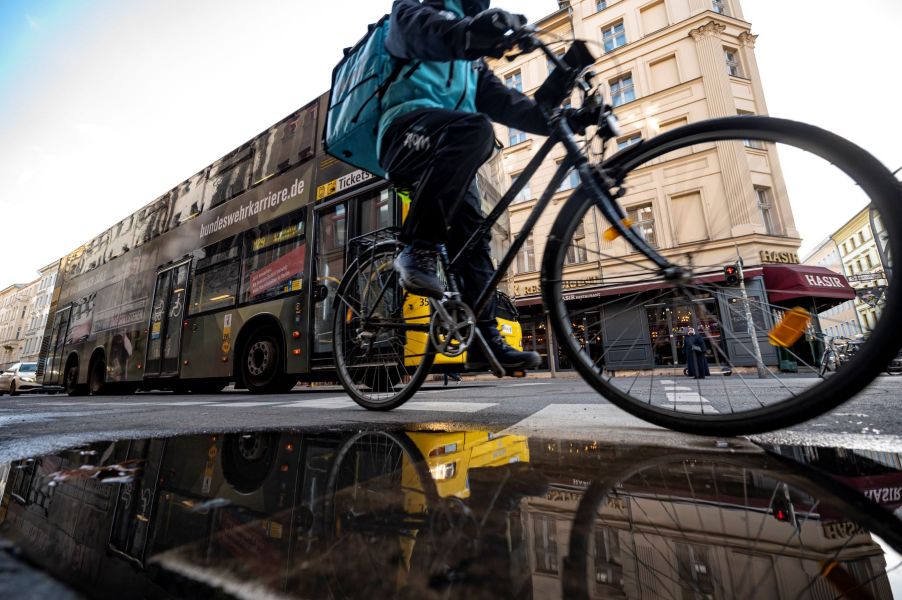
15 Car-Free Cities, Towns, and Islands Perfect for Walking and Biking
Most places where people live are continually awash with street traffic. However, car-free cities and towns do exist. These places proudly defy the norms, eschewing cars legally or as a community standard. If you’re interested in a car-free vacation, or even long-term car-free living, consider one of these locales.
1. Ghent, Belgium

The city government of Ghent established a car-free city center in 1996 in reaction to disruptive traffic, environmental concerns, and aesthetic preferences. Ghent currently has a strong bicycle culture, with plenty of lanes and bridges dedicated to cyclists. The city is rated in the top 29% for the cost of living around the world, according to LivingCost.
2. Lamu, Kenya
Cars are forbidden for the general public on the island of Lamu. Instead, donkeys reign supreme as the local method of transport. Lamu is home to a Swahili group with 700-year-old roots on the island.
3. Fire Island, New York
According to Curbed, there’s no public transportation on Fire Island, but there are plenty of bikes and golf carts. Fire Island can be an idyllic paradise when the weather is nice, but it comes at a price, with a high cost of living for residents, most of whom don’t live on the island year-round.
4. Halibut Cove, Alaska
Cars wouldn’t exactly make sense in Halibut Cove, a town mainly supported by stilts and floats within a bay. However, ATVs are popular there, according to Bob Villa, as is plain old walking.
5. Mackinac Island, Michigan
This car-free location in Michigan has a cost of living that’s about 1.5 times higher than the national average. However, the higher cost of living comes with a bonus. The streets are quiet, and residents travel by carriage, bike, or foot, with cars having been banned since 1898.
6. Monhegan, Maine
There are no paved roads on this island in Maine, and the only way to get there is by boat. Monhegan has a full-time population of fewer than 100 people – a group who certainly enjoys their fresh air and simple living.
7. Tangier Island, Virginia
You can take a ferry, but you can’t take your car. Tangier Island doesn’t have roads that can support cars, and residents enjoy a lifestyle of zipping around on bikes and golf carts. Many residents are involved in tourism or the crabbing industry.
8. Zermatt, Switzerland
The main road to Zermatt has been closed to regular traffic for many years. If you want to get around the city, you’ll have to either walk, take a bike, hire an eTaxi, take the eBus, or hire out a horse-drawn carriage.
9. Hydra Island, Greece
The cost of living in Greece is about 16% lower than in the United States, but Hydra Island plays home to many celebrities, so prices there are a bit steeper. However, you won’t need to spend money on a car, as residents get around via bicycles, donkeys, and water taxis.
10. Fes es Bali, Morocco
This ancient walled city would look strange with cars – they’d have nowhere proper to drive. The area of this car-free zone might be the largest in the world. It’s crowded, and most people get around on foot.
11. Catalina Island, California
A favorite destination with mainland Californians, Catalina Island is also mainly car-free. Golf carts, buses, and bikes dominate the transport scene of this 1-square mile island.
12. Beaver River, New York
Beaver River is mostly unknown to outsiders as a tiny community in northern New York. Beaver River is surrounded by the wilderness of the Adirondack State Park. Visitors arrive by floatplane, snowmobile, or boat.
13. La Cumbrecita, Argentina
This South American town goes car-free on a daily basis. From 10 am to 6 pm, the streets are closed to vehicles. The roads aren’t always quiet, though, as they’re often buzzing with a hefty number of tourists who enjoy the charms of this small town.
14. Rock Island, Wisconsin
Not just cars, but any type of motorized transport is prohibited on Rock Island. Instead of cars, Rock Island plays host to hiking paths and blissful silence.
15. Giethoorn, The Netherlands
The roads in Giethoorn aren’t wide enough to accommodate cars, but residents enjoy their lifestyle of walking and cycling down the narrow paved paths. This genteel village harkens back to a simpler time, and the thatched-roof buildings are straight out of a fairy tale.


